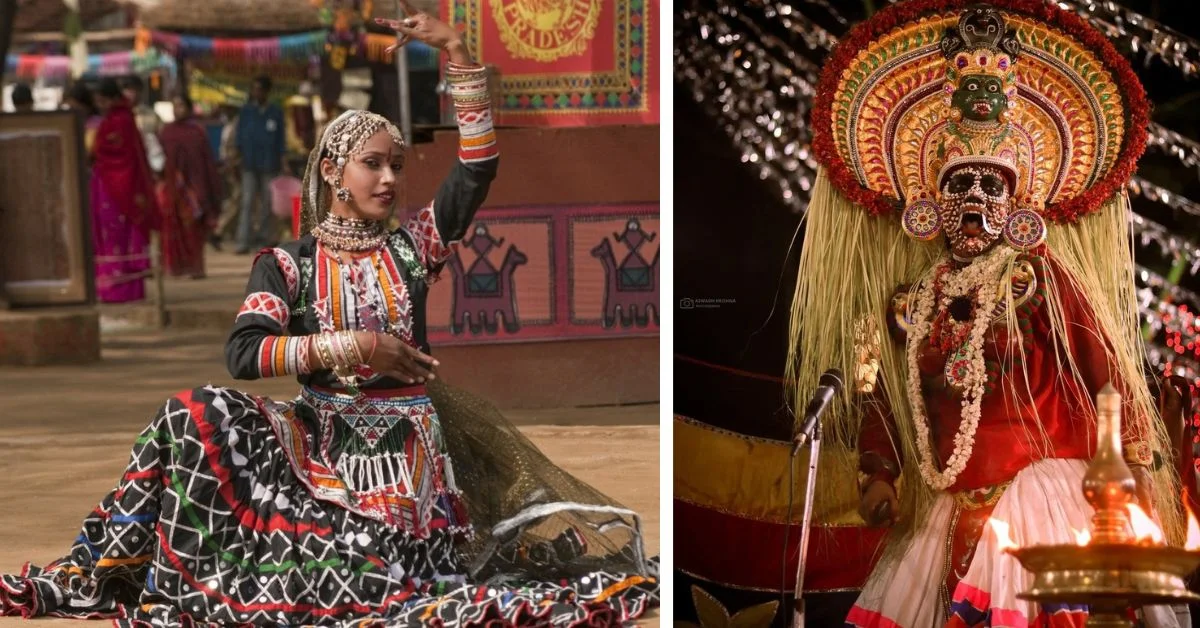Anybody who has witnessed a garba efficiency will testify that the air is electrifying — the dancers transferring in circles; their rhythmic movement characterised by sweeping actions backward and forward; the folks music accompanying their clockwork steps; and the snaps, claps and twirls creating a vibrant blur. The vitality is nearly divine.
Garba, which honours womanhood, is primarily from Gujarat however broadly loved throughout India, particularly throughout the nine-day competition of Navratri, which celebrates the divine female.
Indians have at all times embraced garba and now it appears the world has too!
This week, Gujarat’s garba made it to UNESCO’s record of ‘intangible cultural heritage’. As the web site states, “The practitioners and bearers (of garba) are broad and inclusive, from the dancers to the musicians, social teams, craftspeople and spiritual figures concerned within the festivities and preparations.”
Nonetheless, this isn’t the primary Indian cultural artwork type that has been given this honour. Through the years, 14 different heritage kinds have made their strategy to the record. Right here’s a glimpse at them.
1. Kutiyattam Sanskrit Theatre
Certainly one of India’s oldest dwelling theatrical traditions, the Kutiyattam Sanskrit Theatre is believed up to now again to greater than 2,000 years. What’s fascinating is the rigorous coaching that artists should bear earlier than being deemed eligible to turn out to be full-fledged performers.
The custom is characterised by the dancer’s neta abhinaya (eye expression) and hasta abhinaya (the language of gestures). These gestures are stated to be carefully guarded secrets and techniques that belong to particular household lineages in Kerala.
2. Ramlila
The Ramacharitmanas is an epic poem composed by Indian poet Tulsidas within the sixteenth century, which continues to be fashionable up to now. Ramlila is carried out based mostly on the texts talked about on this epic. The act chronicles the battle between Lord Rama and the antagonist Ravana by way of a sequence of performances.
Ramlila will not be solely well-known for evoking love for the epics but additionally for fostering a way of brotherhood because it blurs boundaries of caste, creed and faith, encouraging all villagers to affix within the preparation.
3. Kalbelia people songs
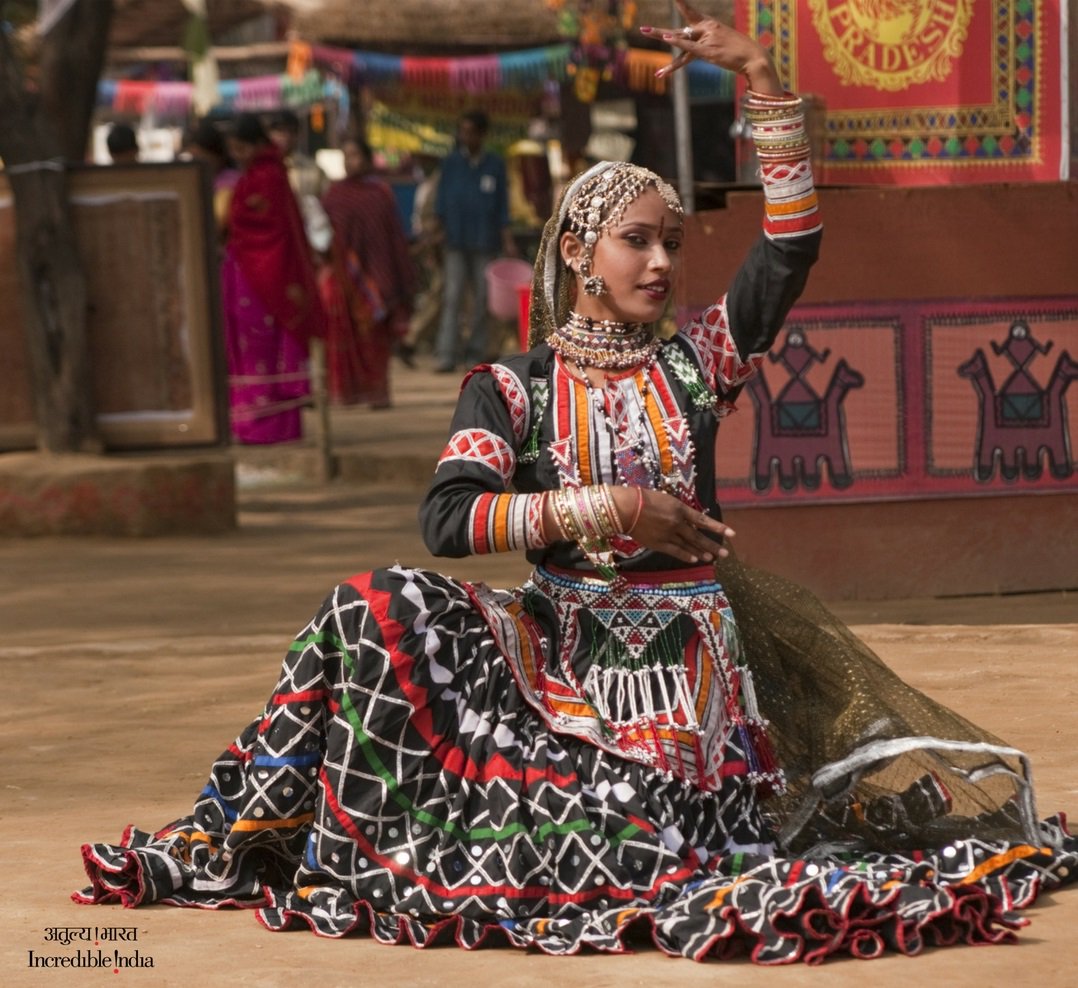
The Kalbelia group of Thar, Rajasthan had been fashionable for his or her talent in charming snakes. They had been additionally credited for being one of many solely tribes that might tame toxic snakes. The youngsters on this group typically grew up amongst these venomous creatures with out being harm!
Nonetheless, in fashionable instances, the tribe’s work has turn out to be redundant. So, the group now channels their prowess into tune and dance by way of the Kalbelia people songs also called the ‘Sapera Dance’ or snake dance.
The ladies gown in black skirts — mimicking snakes — whereas the lads play the khanjari percussion instrument and the poongi.
4. Ramman
Centric to the state of Uttarakhand, the spiritual competition is well known with nice fervour to honour the deity Bhumiyal Devta. Yearly, one household within the village should take the onus of internet hosting the deity. This household should spend the yr making ready for it with fasting and penance.
On the designated day, your entire village gathers for the celebration. Totally different roles are assigned throughout the ceremony — some lead the prayers, the younger ones carry out, elders supervise, and a few put on sacred masks portraying Narasimha, a Hindu deity with the type of a half-man, half-lion.
5. Chhau Dance
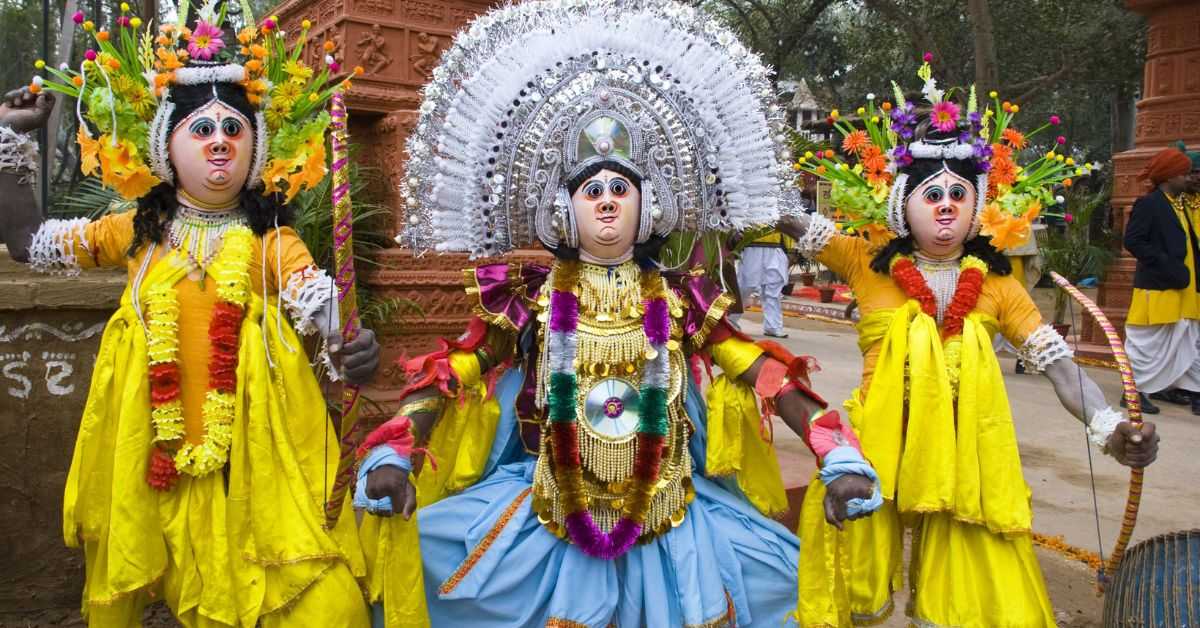
Should you occur to be within the states of Jharkhand, West Bengal or Odisha throughout the spring competition of Chaitra Prava, you’re sure to witness this distinctive dance type. Often put up at night time and accompanied by the sound of drums, mohuri (reed pipes) and shehnai (a double reeded instrument), the dance options male performers who dramatise scenes from epics like Mahabharata and Ramayana.
It’s stated that the steps are impressed by the martial arts dance Phari Khanda Khela and thus mimic warrior actions. In actual fact, the title ‘chhau’ is derived from ‘chhauni’ which implies army barracks.
6. Vedic chanting
Chanting the Vedas requires extra than simply common talent; it calls for intricate recitation strategies taught to practitioners since childhood. This ensures flawless pronunciation and understanding of each phrase, preserving the chants for future generations. Because the Vedas are the bedrock of Hinduism, this difficult apply appears acceptable.
These ‘books of information’ are believed to have been composed over three centuries in the past. Immediately, we all know of them because the Rigveda — an anthology of sacred hymns, the Samaveda — musical preparations of the hymns, the Yajurveda — a group of prayers, and the Atharvaveda — a compilation of incantations and spells.
7. Mudiyettu
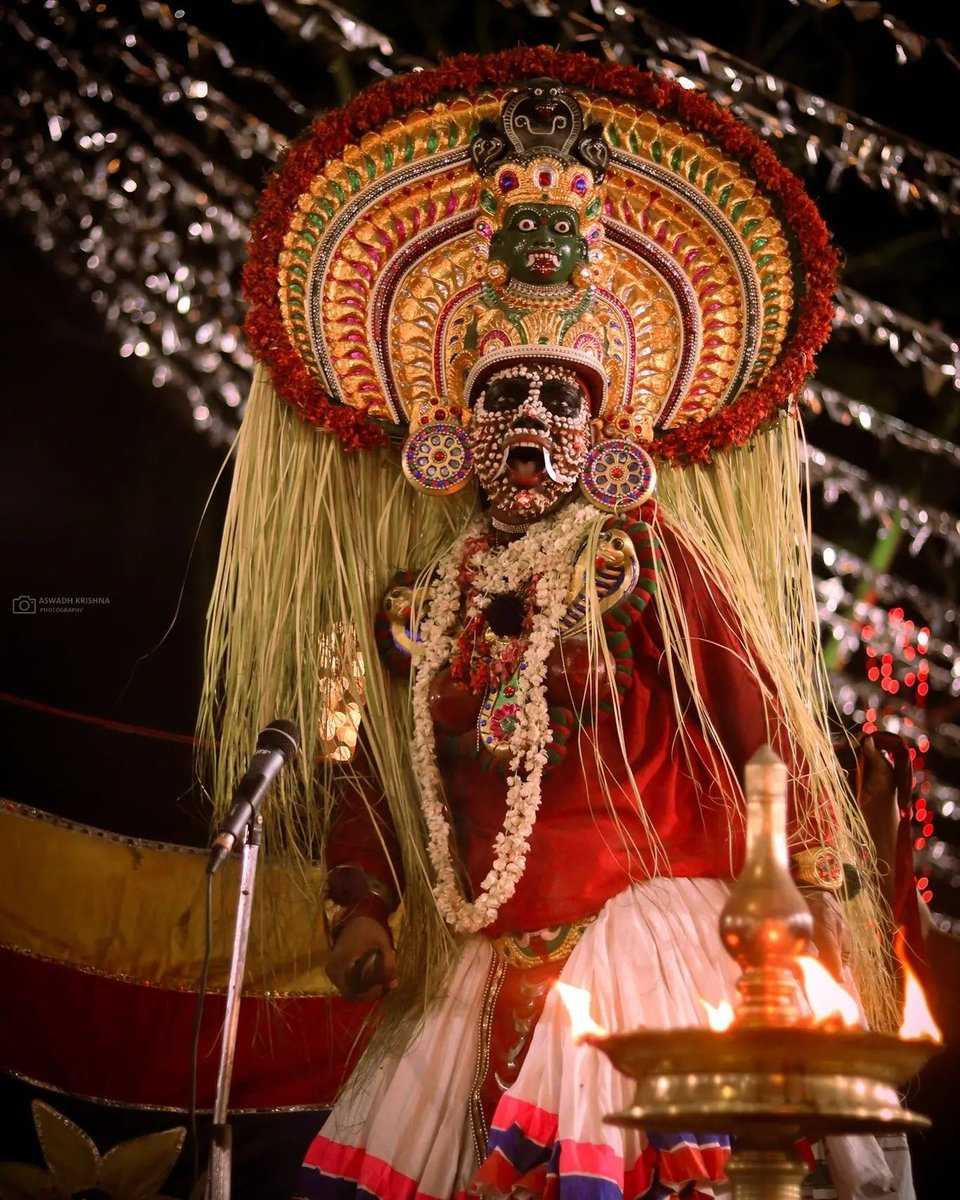
The efficiency includes quite a few steps and is an ode to the Goddess Bhadrakali. On the morning of the ritual dance drama, Mudiyettu performers draw a picture of the deity in colored powders on the temple ground, often called kalamezhuthu.
Kalampuja follows by which the drawing is worshipped based mostly on the idea that the deity’s spirit is now in it. The drawing is then erased and the performers collect in avatars of the deity, the demon Darika, and different characters. As percussion devices ring into the night time silence, the efficiency ensues.
8. Buddhist chanting of Ladakh
The Buddhist group in Ladakh treasures peace and concord. They chant sacred texts to hunt religious enlightenment and typically use chants to keep off evil spirits or to mark auspicious events on the calendar.
The air brims with serenity and calm because the monasteries across the space hum in unison. It’s attention-grabbing to notice that the chanting is accompanied by music, vibrations, and the lamas carrying conventional garments whereas making sleek hand actions referred to as mudras.
9. Sankirtana
Typically hailed because the seen manifestation of God, Sankirtana is carried out to mark the assorted levels of the life cycle of the Vaishnava individuals of the Manipur plains. It’s stated that the artwork type arrived in Manipur as early because the fifteenth century, and the primary kirtana was carried out at Lord Vishnu’s temple in Vishnupur village.
The efficiency contains two drummers and 10 dancers enacting the deeds of Lord Krishna. The vitality throughout the play is so holy that viewers members are prohibited from getting into or leaving whereas the efficiency is on.
10. Thathera craft
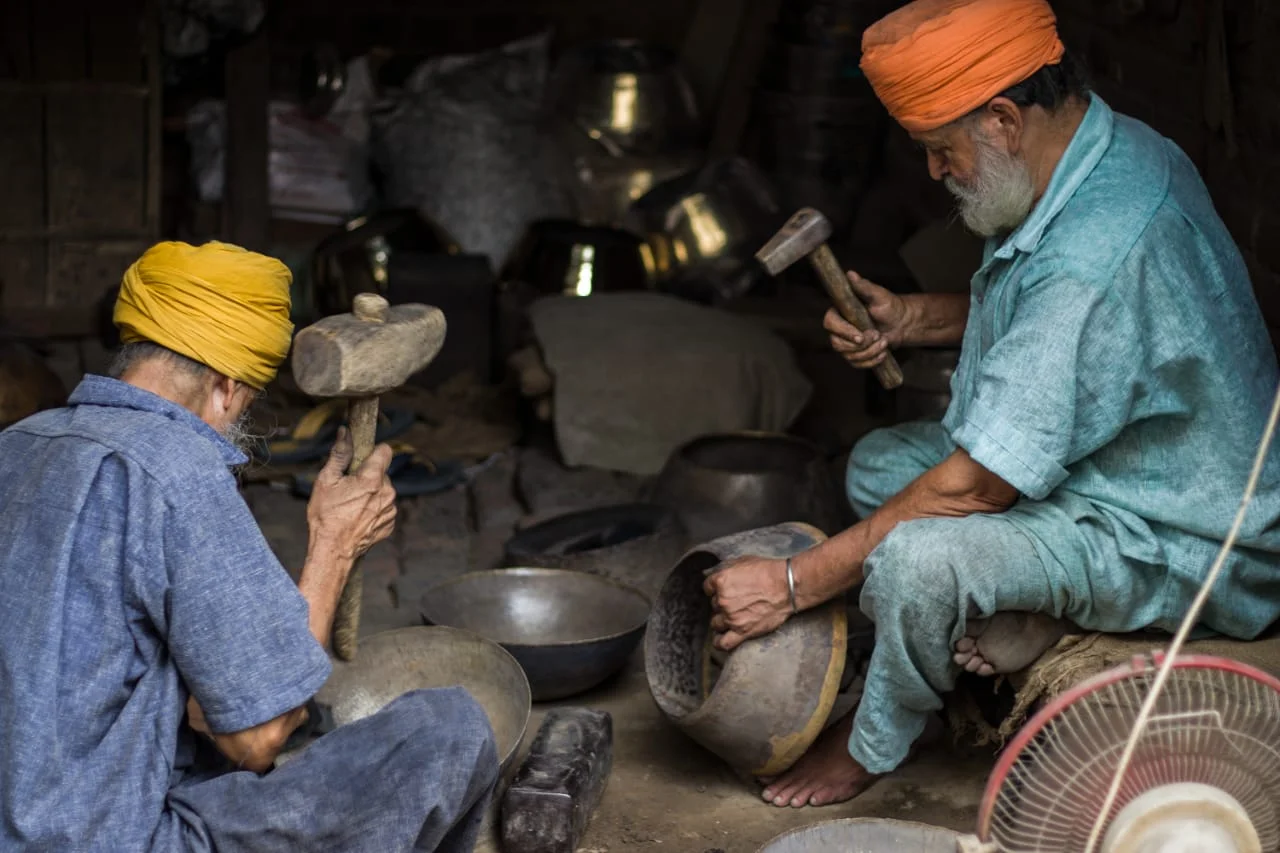
The quite a few well being advantages of utilizing copper and brass vessels are well-known. Nonetheless, round 200 years in the past, these had been much more fashionable than at the moment. It’s stated that the Thathera craft was established when expert metallic employees from Kashmir settled in Jandiala Guru, Punjab below the reign of Maharaja Ranjit Singh.
Since then, Jandiala Guru has turn out to be a bustling mandi (market) for brass and copper vessels. The method of constructing these utensils is intense and entails heating the metallic to excessive temperatures after which moulding it into shapes. A closing polish of tamarind juice is utilized to every piece earlier than they’re prepared on the market.
11. Yoga
The final word aim of yoga is the liberation of physique and thoughts. The poses (asanas), meditation, respiration workouts (pranayama) and chanting are achieved in yoga work to ease bodily and emotional misery within the physique.
Although the apply started as a manner of selling religious well-being, it’s now hailed as probably the greatest methods of reaching holistic well being. There are particular asanas which are stated to assist with migraines, decrease again ache, weight problems, menopause signs and even persistent ailments.
12. Nawrouz
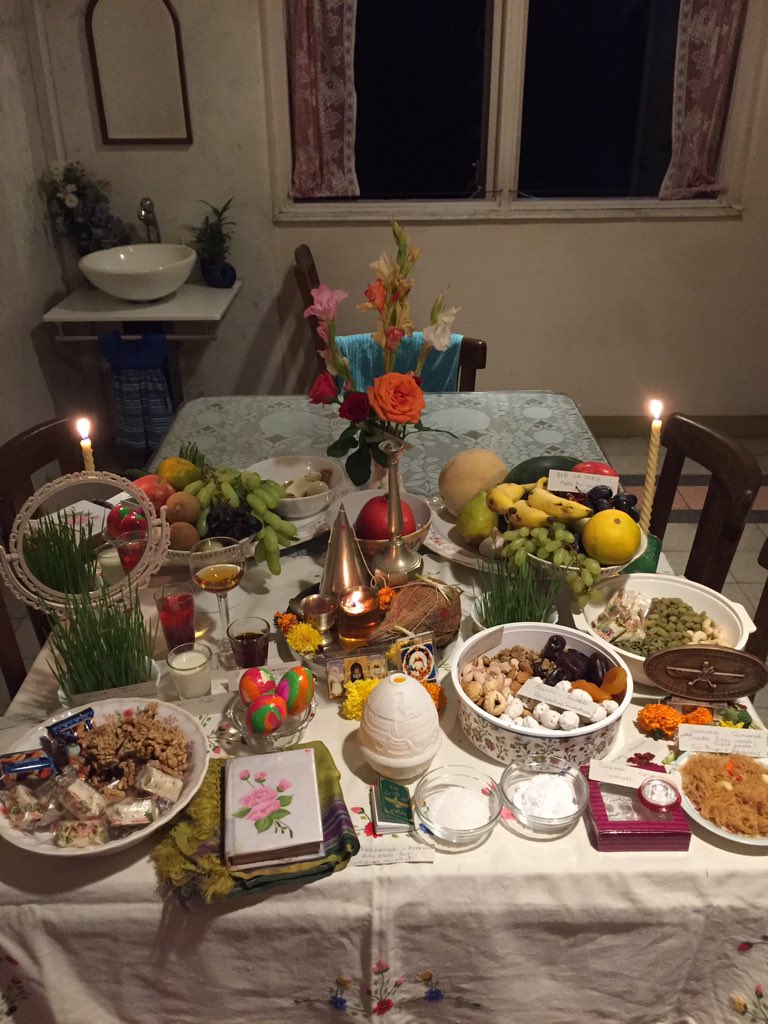
The Irani competition additionally referred to as ‘Persian New 12 months’ is marked by a Thanksgiving lunch the place the household gathers to feast and rejoice. It takes place in March and the festivities go on for round two weeks. The competition is marked by events, items being exchanged between family and friends, and a number of other group actions that strengthen solidarity amongst its members.
Based on UNESCO, “The Spirit of Midday, often called Rapithwina, who was thought of to be pushed underground by the Spirit of Winter throughout the chilly months, was welcomed again with celebrations at midday on the day of Nowruz in line with Zoroastrian custom.”
13. Kumbh Mela
The competition wants no introduction. It’s celebrated 4 instances over 12 years at 4 completely different sacred rivers — Haridwar’s Ganges River, Ujjain’s Shipra, Nashik’s Godavari, and Prayagraj’s Ganges. The competition is hailed as one of many largest peaceable congregations of pilgrims on earth and sees individuals of each faith flocking to it.
Legend says that the Kumbh Mela started when the gods and demons had been combating over the pot (kumbha) of the elixir of immortality (amrita). Throughout the tussle, a number of drops of elixir fell on 4 earthly websites turning the rivers into nectar. To this finish, pilgrims bathe in these rivers to attain immortality.
14. Durga Puja
It’s protected to say that the 10-day competition is the satisfaction of Kolkata, the place it’s celebrated with nice fervour to mark the homecoming of Goddess Durga. Idols of the Goddess produced from unfired clay are sculpted and worshipped. The primary day of the Puja sees eyes being painted on the idols to ‘deliver the Goddess to life’. Then on the tenth day, the idols are immersed within the river, marking the top of the festivities.
The streets of Kolkata are an eclectic combine of faith and tradition on the ten days of the competition. Echoes of “Dugga Dugga” are heard on the streets as individuals want one another a protected life. In the meantime, the aroma of sweets is accompanied by that of dhunuchi (a type of incense produced from the resin of sal timber).
(Edited by Pranita Bhat)
